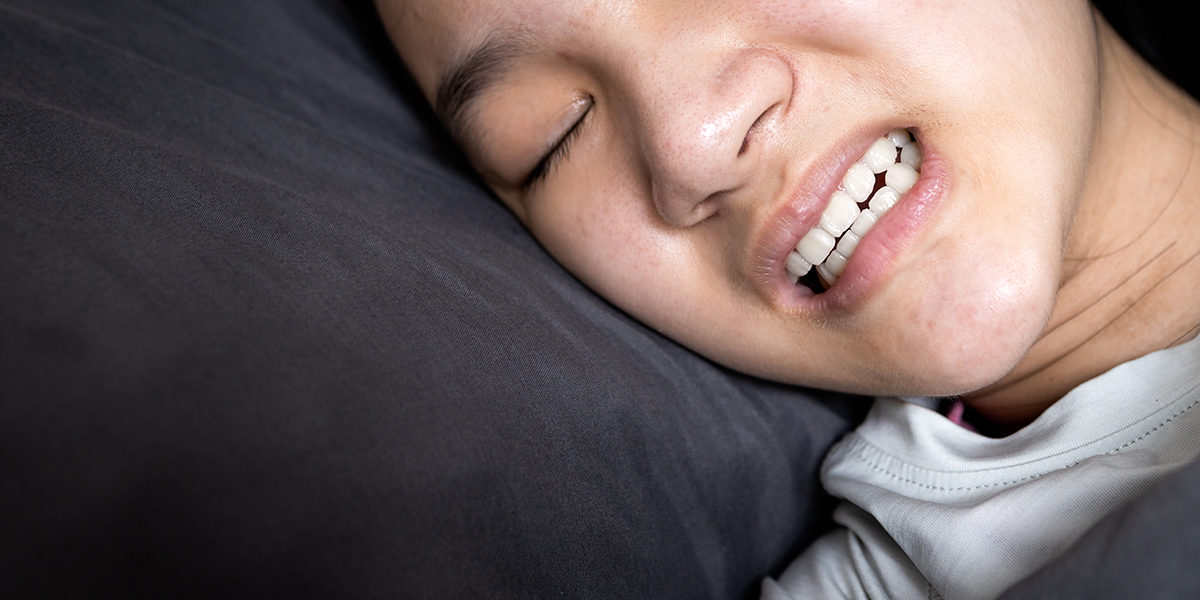Have you ever woken up in the morning with a stiff and achy jaw? You may be suffering from bruxism, otherwise known as tooth clenching, along with an estimated 1 in 10 people that also grind their teeth in the night.
Bruxism is a condition that is characterized by the unconscious grinding or clenching of teeth, which can occur in the day or night. Symptoms include flattened or otherwise damaged teeth, worn tooth enamel, and soreness in the jaw, neck or face. Although tooth clenching is oftentimes mild and doesn’t require treatment, it can lead to having cracked or chipped teeth, headaches, and can be detrimental to your dental work.
Tooth clenching can also increase the risk of developing a jaw disorder, such as lock-jaw or temporomandibular joint problems (TMJ disorders). TMJ disorders cause pain in jaw joints and facial muscles.
Although tooth clenching can be caused by malocclusion (the abnormal alignment of the teeth) or sleep apnea, stress and anxiety are the leading causes of this condition. In fact, approximately 70% of bruxism cases are a result of stress.
Other causes of tooth clenching are reported to be eating late at night, especially sweets and carbs. Drinking alcohol at night can also contribute to tooth clenching.
Fortunately this is something that you can limit with a concerted effort. Tooth clenching is one of the main reasons that dental implants fail—protect your teeth and your dental work by adopting one or more of these strategies:
- Eating earlier
Along with minimizing the risk of obesity and lowering blood sugar levels, eating earlier in the day can limit nightly clenching.
- Regular exercise
Exercising daily reduces stress and can minimize stress-induced bruxism.
- Yoga/meditation
Yoga has been scientifically proven to reduce stress and anxiety and improve mental health.
- Eating healthy
Eating sugary foods before bed increases the risk of teeth grinding during the night. Limit sugary food intake in your diet and avoid crunchy foods like hard candy and pretzels
If you still find tooth grinding to be an issue, talk with your dentist about getting a mouth guard. It’s better to get help than to let tooth grinding damage your teeth and dental work.








